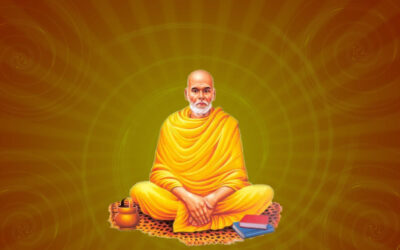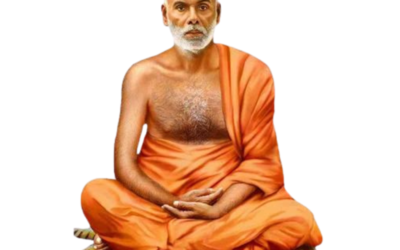Birth and Childhood
Narayana Guru was born in the year 1854 AD at Chempazhanthy, in the suburb of the city of Trivandrum, the present capital of Kerala State, India. In those days Trivandrum was the capital of a princely state called Travancore. Before Travancore came under the hegemony of the Maharaja MarthandaVarma there were eight feudal chiefs who were politically powerful and opposed to the ruling prince. One such chief was of Chempazhanthy. Narayana Guru’s father was MadanAsan and his mother was KuttiAmma. He was the only son of his parents in the family of Vayalvaram, of which a small cottage is still remaining next to a Bhagavati Temple called Manakkal. Even though MadanAsan was not rich, he was of moderate means. His title, Asan, shows that he was looked upon with respect by his villagers. It is not known if he was a teacher. It is likely that Nanu, as Narayana Guru was called by his parents, learnt Tamil, Malayalam, and Sanskrit from his father.
In the days of Narayana Guru the most vital information everyone wanted to know of another person was his caste. This may look ridiculous to the present generation, but no one thought so in those days. Everybody wanted to know caste and everyone revealed his caste also as a matter of course.
Early education
Nanu’s first teacher was his own father, MadanAsan. He had formal schooling in the village school of Chempazhanthy Pillai. Apart from Malayalam and Tamil he learned by heart, as was the practice in those days, Sidharupa, Balaprabodhana and Amrakosa. He was blessed with a penetrating understanding and a sharp memory from very early childhood. Although there were a few schools in Travancore and Cochin in those days, Nanu’s circumstances were such that he had to satisfy himself with what he received from his father, his uncle Krishnan Vaidyar and the village schoolmaster.
A child of nature
Nanu in his adolescence experienced restlessness and engaged in boyhood pranks which were characteristic of his inner untold merit and growth. Home and relatives did not attract him. Being very sensitive to moral and aesthetic values of a profound and universal order, he came into conflict with the crude and unhygienic life-patterns of people. He preferred to be alone or with his cows. Like the reputed cowherd of Brindavan, Nanu was also fond of sitting on the spread out branches of trees as his cows grazed in the green pastures below. Unlike Krishna, who played his flute, Nanu composed hymns and sang them melodiously.
Certain powerful Nair chiefs were ‘baptized’ by the Brahmins with a hocus-pocus ritual of making them ‘Raja-designate’ to be symbolically born out of a golden cow. The priest’s fee was the golden cow. Thus the Kshatriyas of Kerala are homemade products. Nairs were a martial class. They had gymnasiums conducted by Kurups, where they taught martial arts.
Once Nanu’s uncle, Krishnan Vaidyar, heard Nanu’s voice coming from the foliage of a tree. He stood spellbound until the song was over, and, then went near by and asked the shy boy, from whom he learnt that hymn. When he realized Nanu himself composed it, he thought that it was a serious mistake not to allow the young boy to go to a proper teacher.
During these years Nanu also took to gardening. It agreed with his sensitive nature to see seeds germinating and plants bringing forth delicate flowers and edible fruits.
Harmonious village life
From the accounts of elderly people, it is presumed that the village of Narayana Guru had very good communal harmony. Ezhavas and Nairs jointly managed the Manakkal Temple of Chempazhanthy, and Nanu went to a village school of a Nair teacher. We do not hear that the sun-burnt peasants like the Pulayas shared this equality.
A ‘good’ slave accepts the norms of slavery and shows his worth by making himself loyal to the creed of servitude. This was very true of the feudal system of 19th century India. Communities insulated with untouchability lived in relative peace. Narayana Guru’s uncles, Raman Vaidyar and Krishnan Vaidyar were no exception, and indeed they cared very much for the preservation of their own insulated tribal clan.


